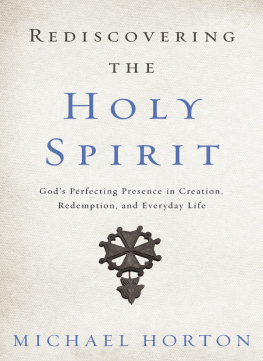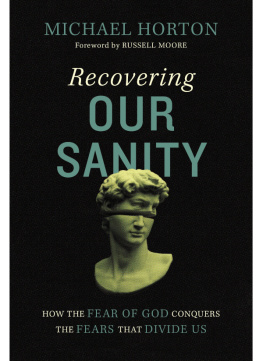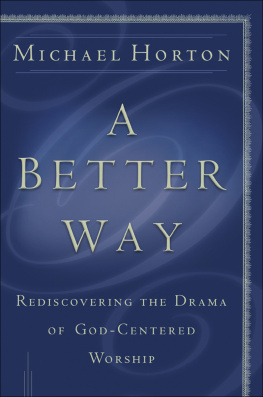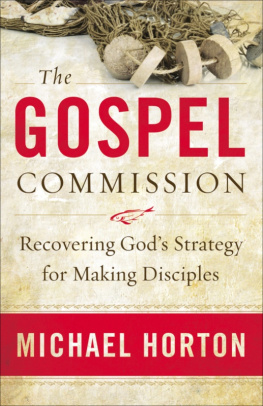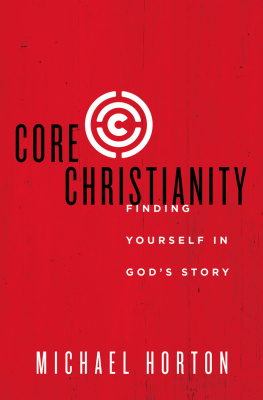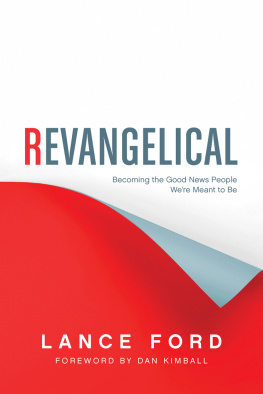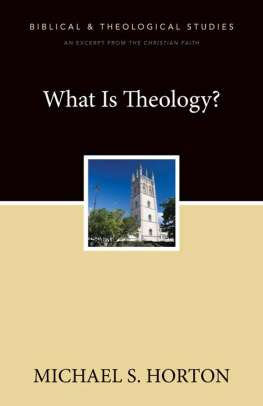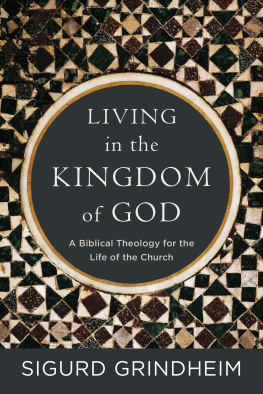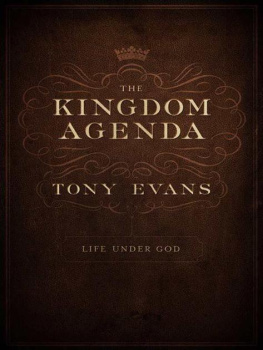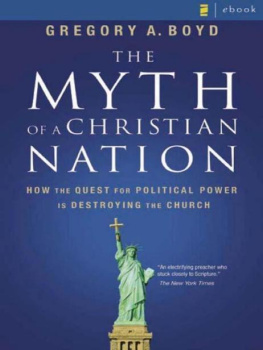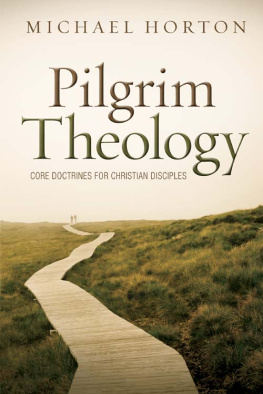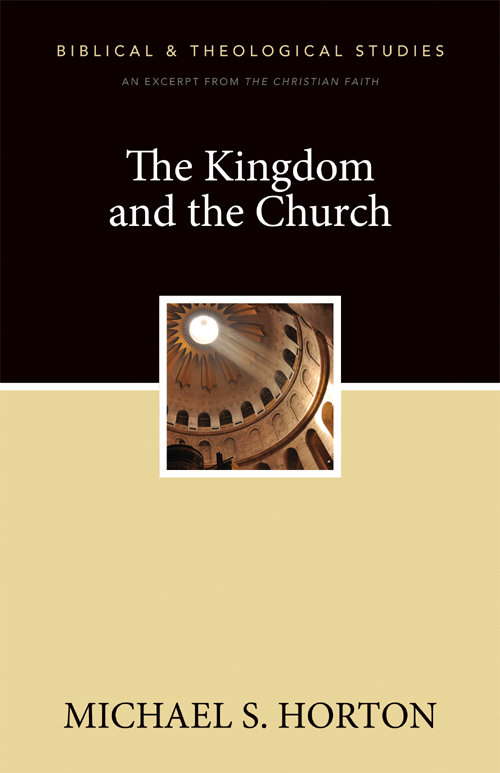CONTENTS
O ften, especially in evangelical circles, thinking about salvation is unrelated to thinking about the church, but this is a serious distortion of the biblical understanding of both topics. On the other hand, there is a danger at the opposite extreme of confusing the church with God as the agent of redemption. As with so many other topics, distinction without division is the watchword: refusing to confuse or to separate the doctrines of salvation and the church.
The same is true concerning the relationship of the kingdom of God to the church. Some Christians so stress the kingdom living of individual believers in the world that the church and its partial manifestation of the kingdom of God through the means of grace become subordinate. Others confuse the church with that kingdom in its fully realized form. Alfred Loisy, a modernist Roman Catholic, quipped, Jesus foretold the kingdom, and it was the Church that came.promised, I will build my church, and the gates of hell shall not prevail against it (Mt 16:15 18). The important question is not how many times the word ekklesia is used, but whether Jesus Christ, by his words and deeds, was in fact building his church. It is clear enough from the narrative plot of the Gospels that Jesus is redefining the qhl (assembly) of Israel. Insiders become outsiders and outsiders become insiders. Not only does Jesus describe this; by his teaching and signs he is actually bringing this reversal about in his ministry. He gathers the nucleus of the new Israel (the prophesied remnant) and promises to gather other sheep from another fold into one flock under himself as one Shepherd (Jn 10 as the fulfillment of Eze 34).
To understand the distinctiveness of the kingdom in its present phase and its relation to the church, we should first recognize the differences between the cultural mandate and the Great Commission.
I. T HE C ULTURAL M ANDATE AND THE G REAT C OMMISSION
All human beings, even as fallen, remain Gods image-bearers with the original commission to rule, guard, and keep, and to be fruitful and multiply and fill the earth and subdue it, extending Gods reign with Eden as the capital (Ge 1:26 28; cf. 2:15). Often referred to as the cultural mandate, this original vocation given to humanity remains the source of that indefatigable impulse to build cities and civilizations, farms and vineyards, houses and empires. Every person, believer and unbeliever alike, receives a distinct vocation for his or her calling in the world, and the Spirit equips each person for these distinct callings in common grace. However, Gods Word in the cultural mandate is law": the command to subdue, rule, fill, and expand.
Only after the fall in the garden is the gospel announced, creating a new community within the human race that will be given an additional mandate: the Great Commission. They will subdue, rule, fill, and expand, but not by creating just governments and empires of cultural advancement for this is now common rather than holy laborbut by Word and sacrament. Instead of dominating and subduing by sword, this community will fill the earth with Gods glory by announcing the fulfillment of Gods promise and his gathering of the remnant from all the nations to Zion.
With the Sinai covenant, however, God establishes a new theocratic kingdom, reuniting the cultural and cultic mandates. As Gods new Adam, Israel is to drive the serpent from the garden, rule and subdue the nations occupying Gods land, and establish righteousness in all the earth. Nevertheless, like Adam they transgressed the covenant (Hos 6:7). And yet Yahweh reissues the promise after Israels fall: he will descend to judge and deliver. The theocracy will be dismantled (signaled by the Spirits evacuation from the temple, rendering it common rather than holy), and the land will be ruled by foreign oppressors, but Yahweh will again hear and answer the cries of his exiled people and send his Messiah.
In this phase of the kingdom, with the King himself present in the flesh on the earth in humiliation and forgiveness rather than power and glory, the cult and culture once again become distinct activities. The kingdoms of this age, like Rome, pursue their common vocations, and now believers are commanded by Jesus, Therefore render to Caesar the things that are Caesars, and to God the things that are Gods (Mt 22:21). Even oppressive rulers are Gods ministers in the cultural sphere of our common curse and common grace as we live alongside unbelievers; we must honor and submit to these governors (Ro 13:1 7; 1Pe 2:13 17). Believers pursue their common vocations alongside unbelievers in the world with distinction in service and godliness.
At the same time, believers also pursue the aims of the Great Commission that Jesus gave to his disciples rather than to the world at large. Like Joseph and Daniel, who held positions of secular leadership during periods of exile, some believers may become rulers of state and leaders in many other cultural labors. Nevertheless, like Joseph and Daniel, they are not to confuse their cultural mandate (which they share with unbelievers) and their evangelical mandate to spread Gods kingdom. While refusing to accommodate their faith and practice to the idolatry of the nations they serve, such leaders also do not seek to advance and expand Gods kingdom by means of the powers that they are given as secular rulers. Christs followers will not imitate the Gentile rulers, who lord it over their people, but will instead imitate the Son of Man, who came not to be served but to serve, and to give his life a ransom for many (Mt 20:25 28). Unlike the theocracy in Eden before the fall and in Canaan, instituted at Sinai, cult (worship) and culture (common vocations in the world) are sharply distinguished, though not intrinsically opposed. Nowhere in the New Testament is the Great Commission fused with the cultural mandate. Rather than offer a blueprint for establishing Christs kingdom through cultural, political, or social power, Pauls instructions for daily conduct of believers in civil society seem rather modest: to aspire to live quietly, and to mind your own affairs, and to work with your hands, as we instructed you, so that you may walk properly before outsiders and be dependent on no one (1Th 4:11 12). Believers and unbelievers continue to share equally in cultural vocations, by Gods common grace. However, Christs kingdom of grace is advanced in the Great Commission, by Gods saving grace.
Like the prophets (and in contrast to the false shepherds accused in Jeremiah 23 of leading the people astray by their own words from the Lord), the twelve apostles are identified as those who were standing in the presence of the L ORD (cf. Dt. 29:10 NIV) and are therefore sent to proclaim his Word. Initially sent to the lost sheep of the house of Israel, they are commissioned to proclaim the good news, The kingdom of heaven has come near, with attending signs of Christs victory over the powers of darkness (cf. Mt 10:5 8 NRSV). So we see already the divine authority and commission being given to Peter (representative of the disciples), the Twelve (representative of Israel), and the Seventy (representative of the whole earth, echoing the seventy included in the table of nations in Ge 10).
The similarities of the cultural mandate and the Great Commission exhibit the crucial point that grace renews rather than destroys nature. Nevertheless, it must never be forgotten that for now the new creation is planted in the midst of the old creation, and while it grows and bears fruit in this present age, it can never be identified with the kingdoms of this age until Christ decisively judges and restores at his return. In Matthew 16, Jesus tells Peter upon the latters confession, I will give you the keys of the kingdom of heaven, and whatever you bind on earth will be bound in heaven, and whatever you loose on earth will be loosed in heaven (vv. 17 19). Then two chapters later we read of Jesus telling the Twelve more generally, Truly, I say to you, whatever you bind on earth shall be bound in heaven, and whatever you loose on earth shall be loosed in heaven. Again I say to you, if two of you agree on earth about anything they ask, it will be done for them by my Father in heaven. For where two or three are gathered in my name, there am I among them (Mt 18:18 20).


